Foreign visits
Nikol Pashinyan’s official visit to Italy kicks off; PM visits Mekhitarist Congregation
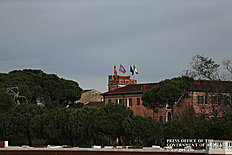 1670x1113px - 563 Kb
1670x1113px - 563 Kb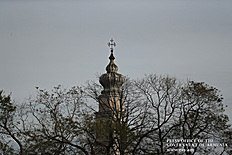 1670x1113px - 741 Kb
1670x1113px - 741 Kb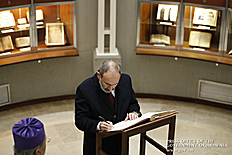 1670x1113px - 450 Kb
1670x1113px - 450 Kb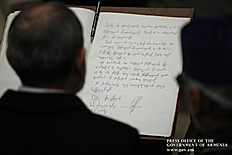 1670x1113px - 302 Kb
1670x1113px - 302 Kb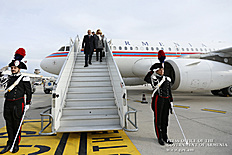 1670x1113px - 500 Kb
1670x1113px - 500 Kb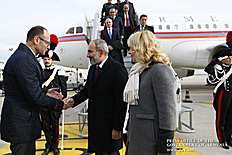 1670x1113px - 455 Kb
1670x1113px - 455 Kb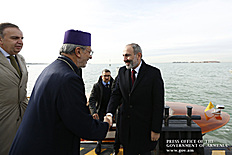 1670x1113px - 311 Kb
1670x1113px - 311 Kb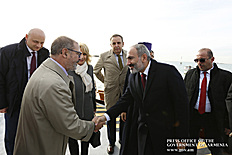 1670x1113px - 327 Kb
1670x1113px - 327 Kb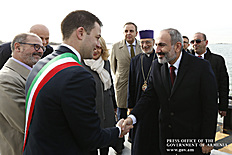 1670x1113px - 366 Kb
1670x1113px - 366 Kb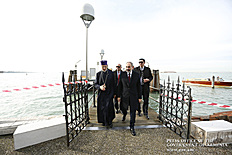 1670x1113px - 612 Kb
1670x1113px - 612 Kb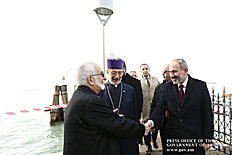 1670x1113px - 300 Kb
1670x1113px - 300 Kb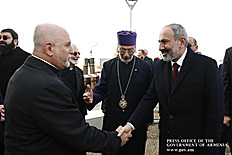 1670x1113px - 324 Kb
1670x1113px - 324 Kb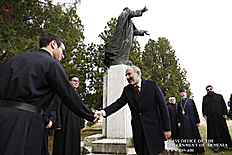 1670x1113px - 564 Kb
1670x1113px - 564 Kb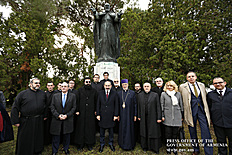 1670x1113px - 984 Kb
1670x1113px - 984 Kb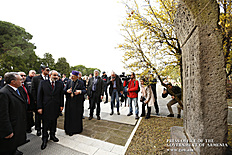 1670x1113px - 1 Mb
1670x1113px - 1 Mb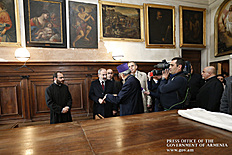 1670x1113px - 765 Kb
1670x1113px - 765 Kb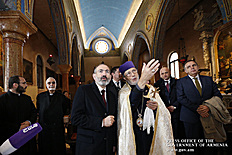 1670x1113px - 693 Kb
1670x1113px - 693 Kb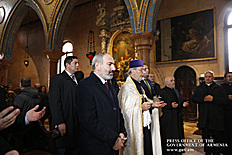 1670x1113px - 607 Kb
1670x1113px - 607 Kb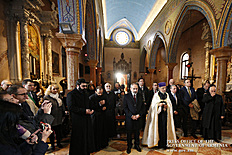 1670x1113px - 821 Kb
1670x1113px - 821 Kb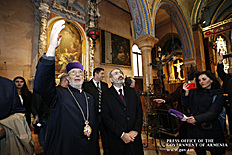 1670x1113px - 528 Kb
1670x1113px - 528 Kb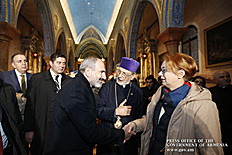 1670x1113px - 634 Kb
1670x1113px - 634 Kb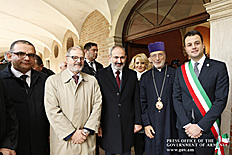 1670x1113px - 534 Kb
1670x1113px - 534 Kb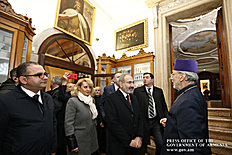 1670x1113px - 698 Kb
1670x1113px - 698 Kb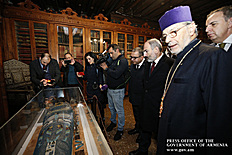 1670x1113px - 716 Kb
1670x1113px - 716 Kb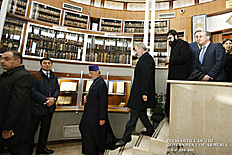 1670x1113px - 786 Kb
1670x1113px - 786 Kb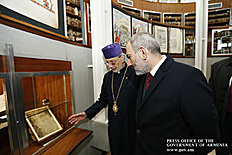 1670x1113px - 570 Kb
1670x1113px - 570 Kb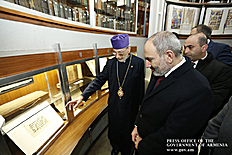 1670x1113px - 650 Kb
1670x1113px - 650 Kb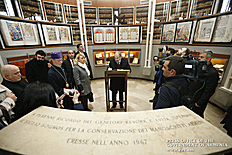 1670x1113px - 766 Kb
1670x1113px - 766 Kb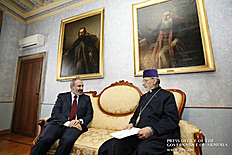 1670x1113px - 723 Kb
1670x1113px - 723 Kb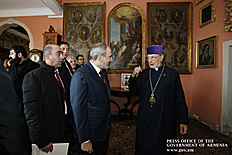 1670x1113px - 610 Kb
1670x1113px - 610 Kb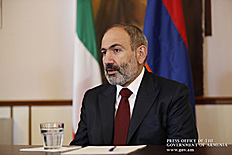 1670x1113px - 417 Kb
1670x1113px - 417 Kb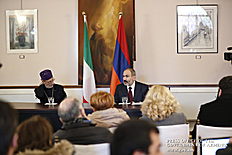 1670x1113px - 403 Kb
1670x1113px - 403 Kb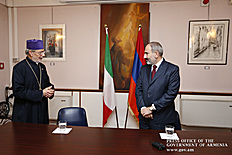 1670x1113px - 569 Kb
1670x1113px - 569 Kb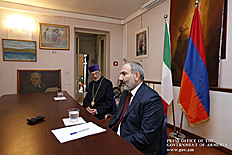 1670x1113px - 570 Kb
1670x1113px - 570 Kb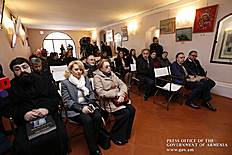 1670x1113px - 638 Kb
1670x1113px - 638 Kb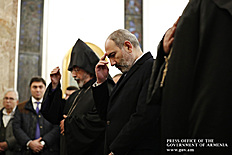 1670x1113px - 324 Kb
1670x1113px - 324 Kb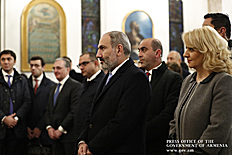 1670x1113px - 400 Kb
1670x1113px - 400 Kb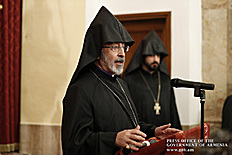 1670x1113px - 307 Kb
1670x1113px - 307 Kb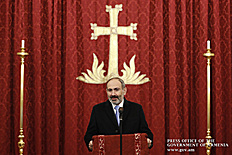 1670x1113px - 517 Kb
1670x1113px - 517 Kb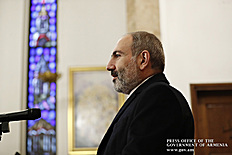 1670x1113px - 348 Kb
1670x1113px - 348 Kb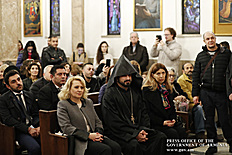 1670x1113px - 497 Kb
1670x1113px - 497 Kb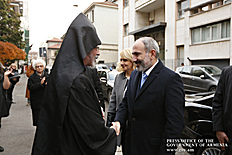 1670x1113px - 499 Kb
1670x1113px - 499 Kb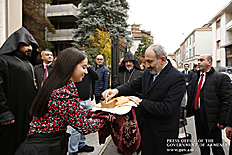 1670x1113px - 655 Kb
1670x1113px - 655 Kb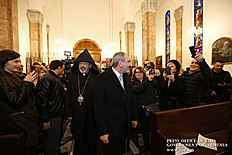 1670x1113px - 539 Kb
1670x1113px - 539 Kb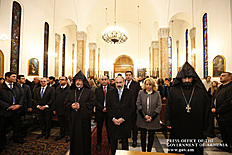 1670x1113px - 606 Kb
1670x1113px - 606 Kb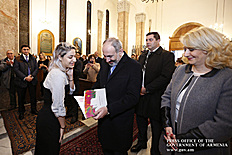 1670x1113px - 677 Kb
1670x1113px - 677 Kb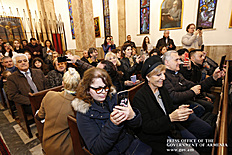 1670x1113px - 725 Kb
1670x1113px - 725 Kb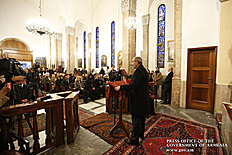 1670x1113px - 862 Kb
1670x1113px - 862 Kb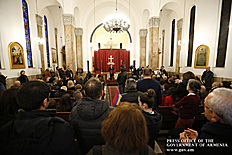 1670x1113px - 686 Kb
1670x1113px - 686 Kb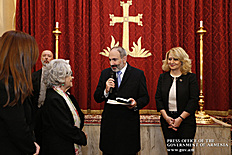 1670x1113px - 708 Kb
1670x1113px - 708 Kb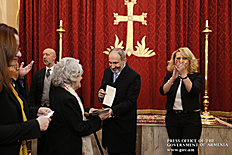 1670x1113px - 728 Kb
1670x1113px - 728 Kb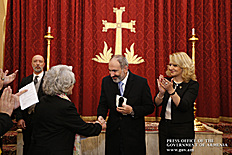 1670x1113px - 672 Kb
1670x1113px - 672 Kb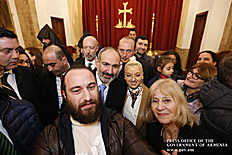 1670x1113px - 602 Kb
1670x1113px - 602 Kb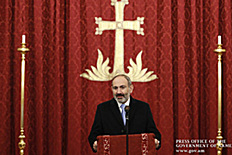 320x202px - 54 Kb
320x202px - 54 Kb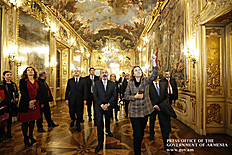 1670x1113px - 1 Mb
1670x1113px - 1 Mb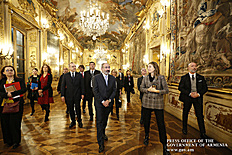 1670x1113px - 1 Mb
1670x1113px - 1 Mb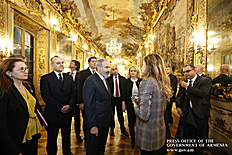 1670x1113px - 918 Kb
1670x1113px - 918 Kb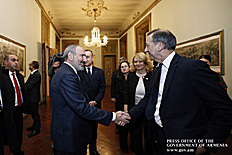 1670x1113px - 570 Kb
1670x1113px - 570 Kb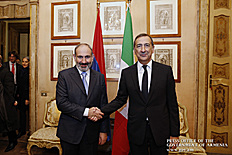 1670x1113px - 636 Kb
1670x1113px - 636 Kb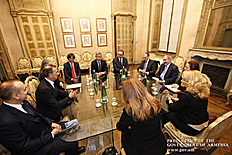 1670x1113px - 820 Kb
1670x1113px - 820 Kb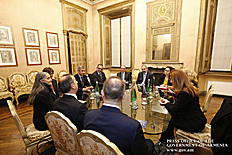 1670x1113px - 850 Kb
1670x1113px - 850 Kb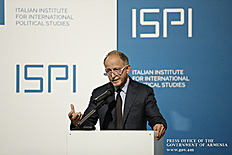 1670x1113px - 343 Kb
1670x1113px - 343 Kb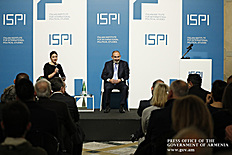 1670x1113px - 397 Kb
1670x1113px - 397 Kb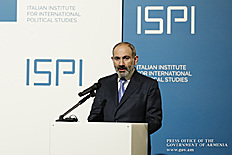 1670x1113px - 355 Kb
1670x1113px - 355 Kb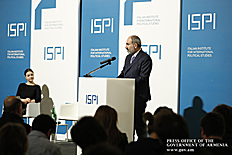 1670x1113px - 375 Kb
1670x1113px - 375 Kb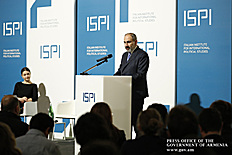 1670x1113px - 368 Kb
1670x1113px - 368 Kb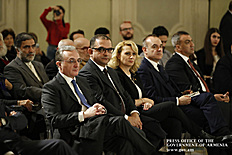 1670x1113px - 363 Kb
1670x1113px - 363 Kb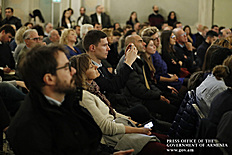 1670x1113px - 437 Kb
1670x1113px - 437 Kb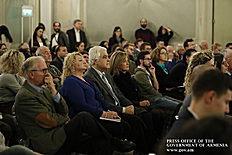 1670x1113px - 463 Kb
1670x1113px - 463 Kb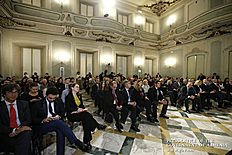 1670x1113px - 789 Kb
1670x1113px - 789 Kb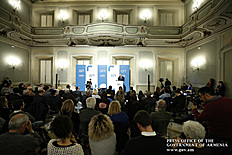 1670x1113px - 729 Kb
1670x1113px - 729 Kb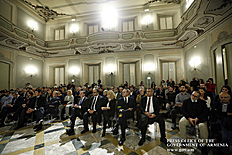 1670x1113px - 818 Kb
1670x1113px - 818 Kb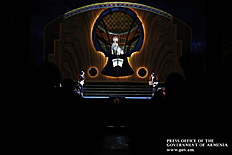 1670x1113px - 253 Kb
1670x1113px - 253 Kb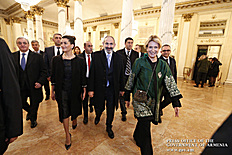 1670x1113px - 685 Kb
1670x1113px - 685 Kb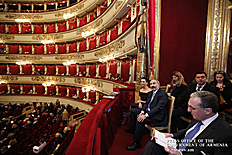 1670x1113px - 929 Kb
1670x1113px - 929 Kb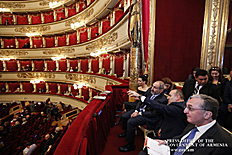 1670x1113px - 837 Kb
1670x1113px - 837 Kb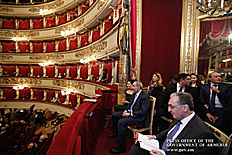 1670x1113px - 960 Kb
1670x1113px - 960 Kb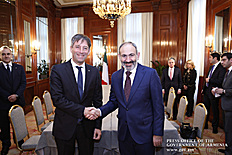 1670x1113px - 637 Kb
1670x1113px - 637 Kb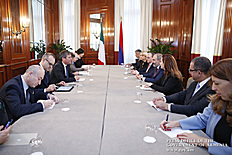 1670x1113px - 639 Kb
1670x1113px - 639 Kb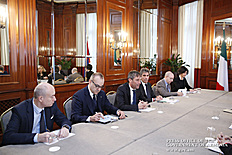 1670x1113px - 739 Kb
1670x1113px - 739 Kb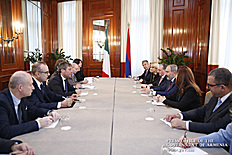 1670x1113px - 650 Kb
1670x1113px - 650 Kb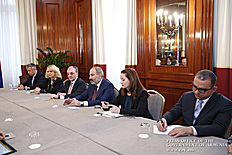 1670x1113px - 669 Kb
1670x1113px - 669 Kb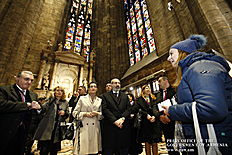 1670x1113px - 694 Kb
1670x1113px - 694 Kb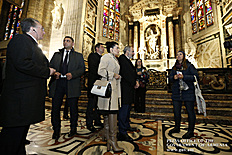 1670x1113px - 898 Kb
1670x1113px - 898 Kb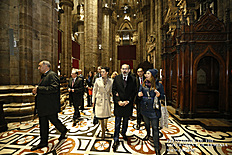 1670x1113px - 898 Kb
1670x1113px - 898 Kb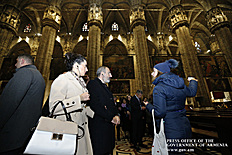 1670x1113px - 748 Kb
1670x1113px - 748 Kb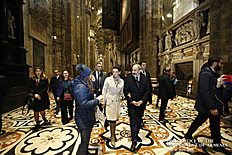 1670x1113px - 838 Kb
1670x1113px - 838 Kb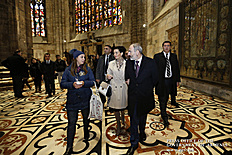 1670x1113px - 897 Kb
1670x1113px - 897 Kb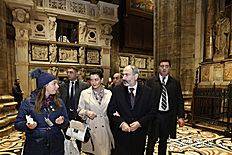 1670x1113px - 762 Kb
1670x1113px - 762 Kb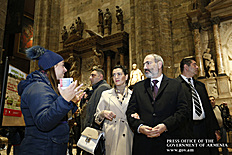 1670x1113px - 720 Kb
1670x1113px - 720 Kb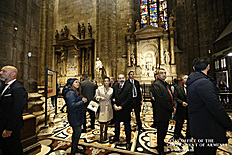 1670x1113px - 889 Kb
1670x1113px - 889 Kb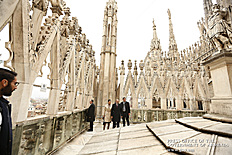 1670x1113px - 899 Kb
1670x1113px - 899 Kb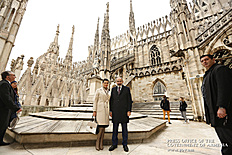 1670x1113px - 878 Kb
1670x1113px - 878 Kb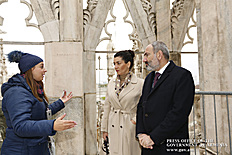 1670x1113px - 479 Kb
1670x1113px - 479 Kb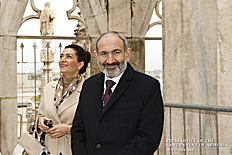 1670x1113px - 435 Kb
1670x1113px - 435 Kb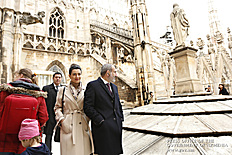 1670x1113px - 736 Kb
1670x1113px - 736 Kb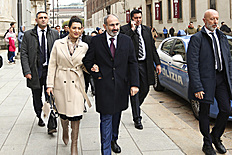 1113x1670px - 606 Kb
1113x1670px - 606 Kb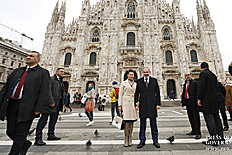 1670x1113px - 683 Kb
1670x1113px - 683 Kb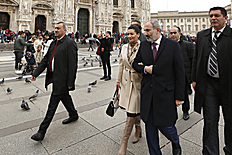 1113x1670px - 741 Kb
1113x1670px - 741 Kb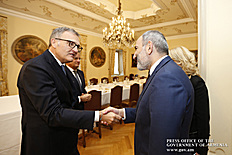 1670x1113px - 472 Kb
1670x1113px - 472 Kb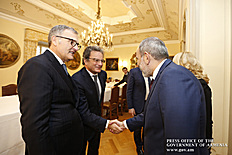 1670x1113px - 464 Kb
1670x1113px - 464 Kb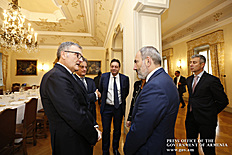 1670x1113px - 505 Kb
1670x1113px - 505 Kb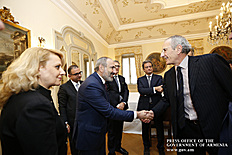 1670x1113px - 542 Kb
1670x1113px - 542 Kb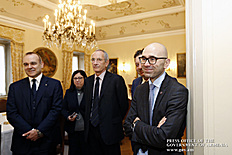 1670x1113px - 455 Kb
1670x1113px - 455 Kb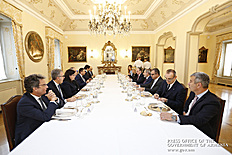 1670x1113px - 658 Kb
1670x1113px - 658 Kb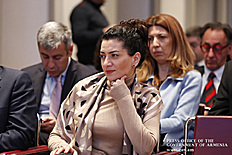 1670x1113px - 559 Kb
1670x1113px - 559 Kb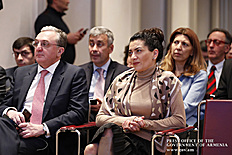 1670x1113px - 577 Kb
1670x1113px - 577 Kb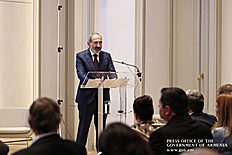 1670x1113px - 371 Kb
1670x1113px - 371 Kb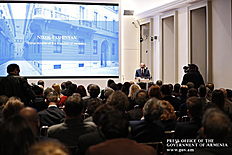 1670x1113px - 486 Kb
1670x1113px - 486 Kb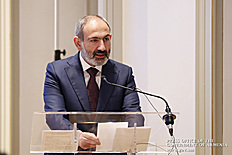 1670x1113px - 389 Kb
1670x1113px - 389 Kb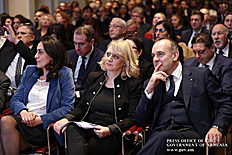 1670x1113px - 548 Kb
1670x1113px - 548 Kb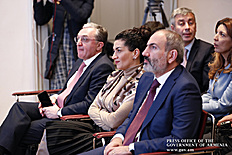 1670x1113px - 490 Kb
1670x1113px - 490 Kb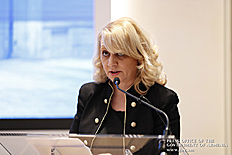 1670x1113px - 324 Kb
1670x1113px - 324 Kb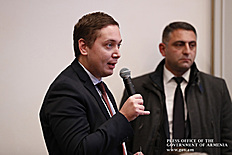 1670x1113px - 318 Kb
1670x1113px - 318 Kb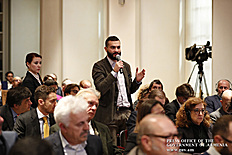 1670x1113px - 453 Kb
1670x1113px - 453 Kb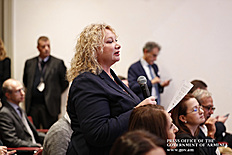 1670x1113px - 362 Kb
1670x1113px - 362 Kb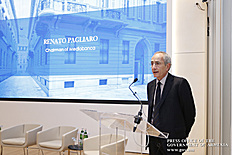 1670x1113px - 502 Kb
1670x1113px - 502 Kb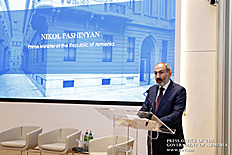 1670x1113px - 539 Kb
1670x1113px - 539 Kb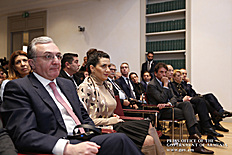 1670x1113px - 482 Kb
1670x1113px - 482 Kb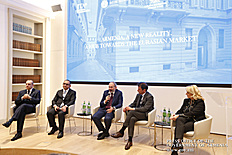 1670x1113px - 607 Kb
1670x1113px - 607 Kb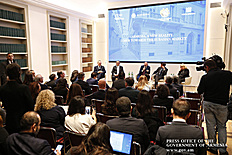 1670x1113px - 687 Kb
1670x1113px - 687 Kb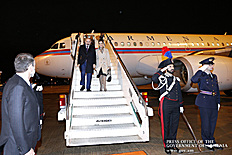 1670x1113px - 707 Kb
1670x1113px - 707 Kb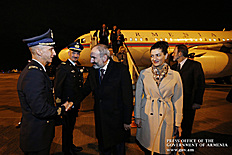 1670x1113px - 683 Kb
1670x1113px - 683 Kb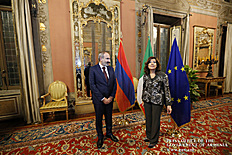 1670x1113px - 1 Mb
1670x1113px - 1 Mb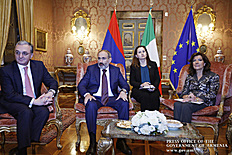 1670x1113px - 1001 Kb
1670x1113px - 1001 Kb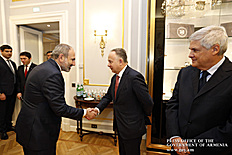 1670x1113px - 501 Kb
1670x1113px - 501 Kb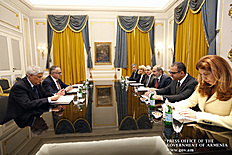 1670x1113px - 769 Kb
1670x1113px - 769 Kb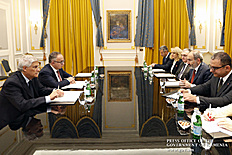 1670x1113px - 745 Kb
1670x1113px - 745 Kb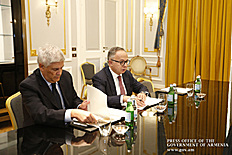 1670x1113px - 625 Kb
1670x1113px - 625 Kb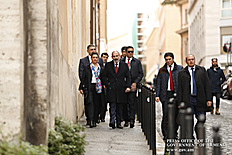 1670x1113px - 458 Kb
1670x1113px - 458 Kb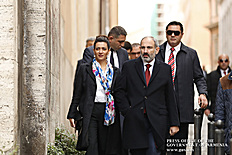 1670x1113px - 602 Kb
1670x1113px - 602 Kb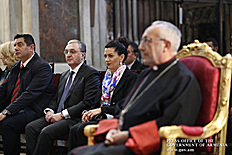 1670x1113px - 478 Kb
1670x1113px - 478 Kb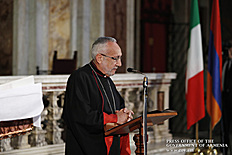 1670x1113px - 386 Kb
1670x1113px - 386 Kb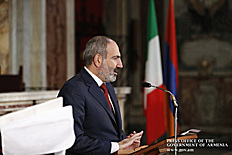 1670x1113px - 350 Kb
1670x1113px - 350 Kb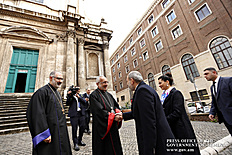 1670x1113px - 827 Kb
1670x1113px - 827 Kb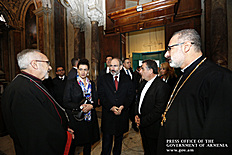 1670x1113px - 456 Kb
1670x1113px - 456 Kb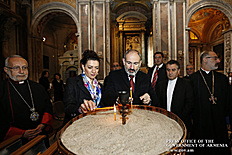 1670x1113px - 624 Kb
1670x1113px - 624 Kb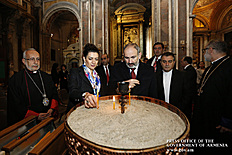 1670x1113px - 624 Kb
1670x1113px - 624 Kb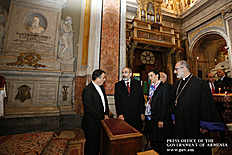 1670x1113px - 826 Kb
1670x1113px - 826 Kb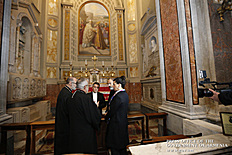 1670x1113px - 749 Kb
1670x1113px - 749 Kb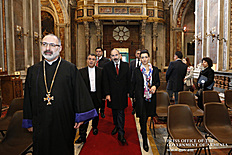 1670x1113px - 779 Kb
1670x1113px - 779 Kb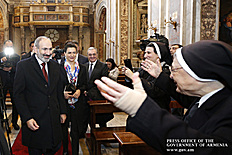 1670x1113px - 708 Kb
1670x1113px - 708 Kb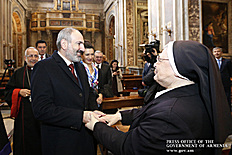 1670x1113px - 657 Kb
1670x1113px - 657 Kb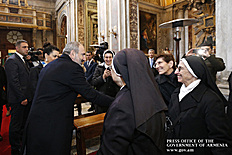 1670x1113px - 614 Kb
1670x1113px - 614 Kb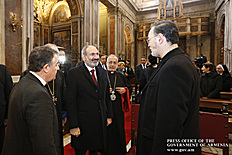 1670x1113px - 673 Kb
1670x1113px - 673 Kb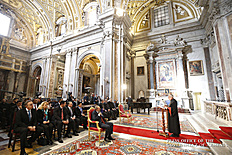 1670x1113px - 1 Mb
1670x1113px - 1 Mb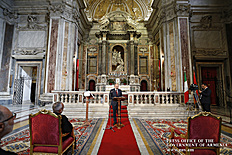 1670x1113px - 1 Mb
1670x1113px - 1 Mb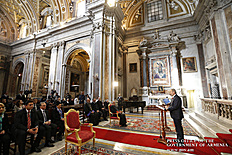 1670x1113px - 1023 Kb
1670x1113px - 1023 Kb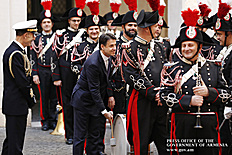 1670x1113px - 611 Kb
1670x1113px - 611 Kb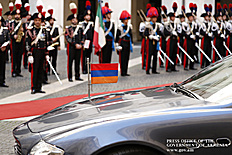 1670x1113px - 509 Kb
1670x1113px - 509 Kb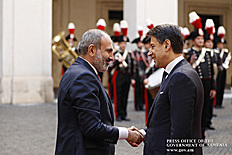 1670x1113px - 406 Kb
1670x1113px - 406 Kb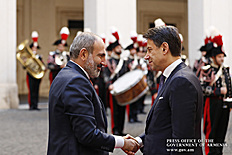 1670x1113px - 426 Kb
1670x1113px - 426 Kb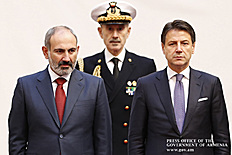 1670x1113px - 352 Kb
1670x1113px - 352 Kb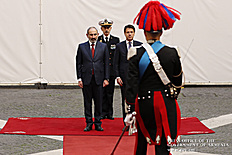 1670x1113px - 466 Kb
1670x1113px - 466 Kb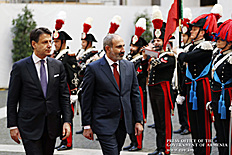 1670x1113px - 452 Kb
1670x1113px - 452 Kb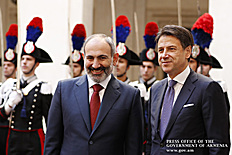 1670x1113px - 450 Kb
1670x1113px - 450 Kb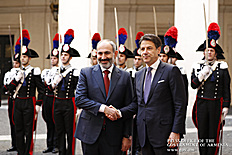 1670x1113px - 429 Kb
1670x1113px - 429 Kb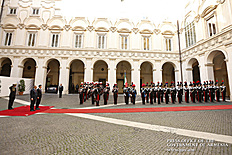 1670x1113px - 951 Kb
1670x1113px - 951 Kb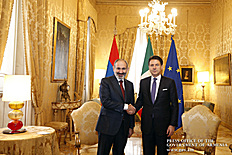 1670x1113px - 842 Kb
1670x1113px - 842 Kb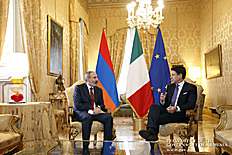 1670x1113px - 832 Kb
1670x1113px - 832 Kb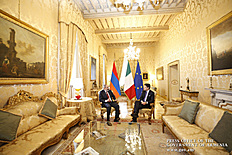 1670x1113px - 933 Kb
1670x1113px - 933 Kb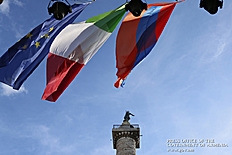 1670x1113px - 318 Kb
1670x1113px - 318 Kb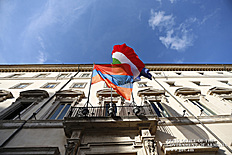 1670x1113px - 604 Kb
1670x1113px - 604 Kb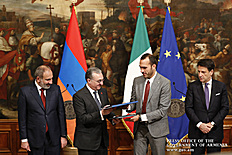 1670x1113px - 561 Kb
1670x1113px - 561 Kb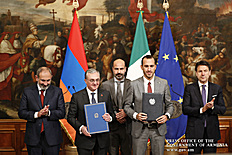 1670x1113px - 531 Kb
1670x1113px - 531 Kb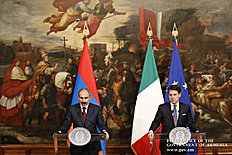 1670x1113px - 509 Kb
1670x1113px - 509 Kb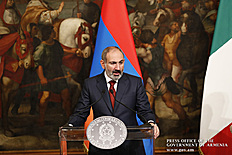 1670x1113px - 434 Kb
1670x1113px - 434 Kb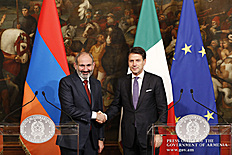 1670x1113px - 552 Kb
1670x1113px - 552 Kb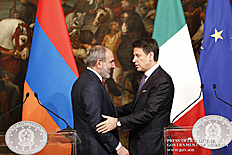 1670x1113px - 514 Kb
1670x1113px - 514 Kb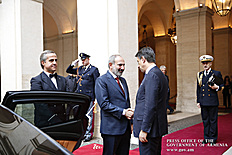 1670x1113px - 528 Kb
1670x1113px - 528 Kb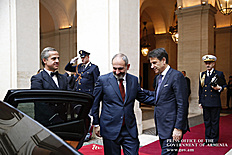 1670x1113px - 529 Kb
1670x1113px - 529 Kb
more 168 photos
Prime Minister Nikol Pashinyan has arrived in Italy on official visit.
The Prime Minister’s visit started in Venice. The Premier first visited the Saint Lazarus Island where the Mekhitarian Congregation is located, a religious and cultural organization with a history of about 3 centuries.
The Head of Government toured the site, where Pontifical Delegate of the Mekhitarist Congregation, Prelate of the Armenian Catholic Church in Turkey Archbishop Levon Zekian briefed him on the consequences of the latest flood in Venice. According to him, the ground floors were filled with water, the south gate was ruined and some manuscripts and ornaments were damaged in the disaster. A sailboat called Armenia collided with a berth, but the Congregation did not suffer serious cultural damage. The scale of the damage is being estimated at this point of time.
Prime Minister Pashinyan expressed solidarity with the members of the Congregation, stating that he was glad that no irreversible losses had been caused to the Mekhitarists’ cultural assets. Following the Lord’s Prayer, Nikol Pashinyan lit a candle and later called at the Congregation’s library to sign in the Golden Book. “We have come to express our support to the flood-hit Mekhitarist Congregation, I am happy that no irreversible damage has been inflicted. I would also like to express the Armenian people’s appreciation to the Mekhitarist Congregation considering that it is a source of our modern education, science and arts. At the times when the Armenian identity was jeopardized in the Motherland, the Mekhitarist Congregation became a temple for preservation of our language, history and identity. I bow to all devotees of that sacred mission,” the Premier wrote.
Later on, the Prime Minister met with Pontifical Delegate of the Mekhitarist Congregation, Prelate of the Armenian Catholic Church in Turkey Archbishop Levon Zekian.
Greeting the Prime Minister, Archbishop Levon Zakian noted:
“Mr. Prime Minister,
I wish to greet you with a poetic line by Shiraz. “Our hopes are being renovated as we see you: today is a moment of resurrection. Much can be said about the Mekhitarist Congregation. We have a history of three hundred years. The Congregation has gone through many hardships, but it was always restored and reinstated. We faced difficulties recently, but we are confident that we will be able to defy them with the help of God, strong with the support of the Armenian people and the Armenian state.”
Thanking the Archbishop, Prime Minister Pashinyan said:
“Father Levon,
Of course, it is a great honor for me to be here. I am sorry that my visit came to be associated with the flood. But, on the other hand, I am really happy that no irreversible damage has been caused, and as I had the opportunity to write in the Guest Book, the Mekhitarist Congregation has a very important role to play in our reality.
At a time when our identity was endangered in the Motherland and was even on the verge of destruction, the Mekhitarist Congregation became a focal venue where our history, our language, our science and art were studied, and its role is invaluable in this respect.
I am very much moved to be here and I am convinced that the Congregation, this monument of scientific research, Armenian studies, history and culture will continue to play a symbolic role for many years ahead. Also, I would like to believe that it will play a practical role in the future. I am happy to be here.”
* * *
Prime Minister Nikol Pashinyan is in Italy on an official visit. The visit kicked off in the Mekhitarist Congregation, San Lazzaro Island, where he met with the Congregation’s spiritual leaders and representatives of the Armenian community of Venice.
Pontifical Delegate of the Mekhitarist Congregation, Prelate of the Armenian Catholic Church in Turkey Archbishop Levon Zekian welcomed Nikol Pashinyan on behalf of the Congregation and the Armenian community and wished him every success in his public activities.
Thankful for the warm welcome, Prime Minister Pashinyan said,
“Father Levon,
Dear compatriots,
Dear guests,
I am very glad for this opportunity. I want to once again emphasize that of course, the formal reason for visiting you is the flood, which has unfortunately caused significant damage to San Lazzaro Island and the Mekhitarist Congregation. But, of course, I would have definitely looked for an opportunity to come here, since I had never had such a possibility in the past. San Lazzaro Island and the Mekhitarist Congregation are of great historical and modern-time importance. I am confident that it will hold its important role in the future as well.
The scientific heritage created here, first of all as regards the Armenian studies, the Armenian language and our history, has actually laid the foundation for our modern science and education, and this is very important.
It is likewise important for us to assess at its true value this scientific temple, this spiritual center of paramount importance in terms of our ethnic identity, development and self-knowledge. I would like to state that the Congregation did not suffer irreparable damage: damage will be repaired, while we just need to move ahead. With all my heart, I wish every success to the Mekhitarist Congregation and, to our people, in general.
I want to note that a key point in the program of the political force that I represent, the “Civil Contract” Party, is the preservation and development of the Armenian identity. This is really very important for us, and I want to emphasize that very often by proclaiming glossy mottos we actually harm ourselves, go off the track and appear to be out of touch with our own history and our vision of the future. I consider that going in tune with our identity, our history, our past, and getting to know ourselves, in general, is one of the most important tasks of our government, because not knowing well ourselves means underestimating the potential that we have as a people and as a state .
Indeed, the most important task and objective behind developing our identity is in the future, and I am convinced that our national consolidation stems from the need to better know ourselves. In this regard, the Mekhitarist Congregation has played a very important role and will do so in the future as well.
I am confident that there is still much to explore here. It should also be the focus of attention of Armenia’s scientific community, and we should also think about future-oriented cooperation.”
Nikol Pashinyan said he was pleased to meet with the Armenian community of Venice, noting that his foreign visits always feature meetings with representatives of the Armenian community as part of his government’s vision.
“Our government has developed a national program in Stepanakert to substitute the mentality of fragmentation with a pan-Armenian idea, which means that we believe that as a state, the Republic of Armenia will be more efficient, more competitive and stronger if it acts not only as the representative of Armenian citizens, but also as the representative of the Armenian nation, as a whole,” the Head of Government said.
In his speech, Prime Minister Pashinyan referred to the idea of pan-Armenianism, noting: “Our ideology is that the Republic of Armenia is not only a state founded by the citizens of the Republic of Armenia, but that it is also a state founded by the Armenian people just as it is described in the introduction to the Constitution of the Republic of Armenia: “The Republic of Armenia is the state of the Armenian people, the state of all Armenians, regardless of whether they have de jure citizenship of Armenia or not.”
Our efforts and objectives should be aimed at ensuring that all Armenians in the world have de jure Armenian citizenship and that the Republic of Armenia becomes the hub and the core of Armenian life, becomes the representative of the interests of Armenians across the globe, and all Armenians should act as representatives of the Republic of Armenia and as a citizen of the Republic of Armenia.”
According to Nikolai Pashinyan, there have always been disputes about national ideology in the history of the Third Republic. The Prime Minister noted that every Armenian should live with Armenia, regardless of whether he lives in Armenia or not as this is exactly what Pan-Armenianism implies.
Prime Minister Pashinyan noted that the Armenian government has the mandate to speak on behalf of the people of the Republic of Armenia, and any government in Armenia must have legitimacy to speak on behalf of the Armenian people; we must be a government of national agenda.
The Premier further said that during the days of the revolution he had been receiving many letters from Armenians living in different countries of the world in which they expressed their support and assistance to the revolution. This indicates that we witnessed an all-Armenian process in 2018 that led to radical changes in our country.
The Prime Minister next touched upon corruption and monopolies that existed before the revolution, noting that these phenomena led to a situation where Armenia is short of professional skills and quality in all areas. Now we need to mobilize the nationwide potential and focus on the development of the Motherland.
In response to a question about the ideology of national identity and relations between the Diaspora and the Homeland, Nikol Pashinyan pointed out that the government attaches great importance to cooperation with the Diaspora on many issues, but there is a problem with the participation of Diaspora representatives.
The Head of Government advised that he had instructed the Chief Commissioner for Diaspora Affairs to hold consultations with the widest possible circle of representatives of the Armenian Diaspora and submit proposals on the formation of a pan-Armenian structure.
Nikol Pashinyan also touched upon the issue of the longevity of Armenian statehood and emphasized that dependence on geopolitical factors should be minimized as much as possible, and for this we need a new national thinking, a new approach.
Later today Prime Minister Pashinyan will leave Venice for Milan where the Premier is due to meet with representatives of the Armenian community at S. Forty Martyrs’ (S. Qarasun Mankunq) Armenian apostolic church in Milan.
The Prime Minister will visit the Milan International Institute for Political Studies - the ISPI think tank, where he will meet with Milan Mayor Giuseppe Sala. Then he will attend a discussion, referred to as “Dialogue on the Future.” Nikol Pashinyan will also meet with representatives of the Government of Lombardia, as well as with the business circles of Italy and will take part in the Armenian-Italian business forum.
* * *
As part of his official visit to Italy, Prime Minister Nikol Pashinyan today arrived in Milan, where he is scheduled to attend a series of events and meetings.
Nikol Pashinyan visited the S. Forty Martyrs’ (S. Qarasun Mankunq) Armenian apostolic church in Milan and met with representatives of the Armenian community. The Prime Minister was met by Pontifical Legate in Western Europe and Representative of the Catholicos of All Armenians in the Holy See, His Eminence Archbishop Khajag Barsamian.
After a prayer and a welcoming speech by Archbishop Khajag Barsamian, Prime Minister Pashinyan addressed the audience with greeting remarks, in which he stated:
“Your Grace,
Spiritual fathers
Dear members of the Government of the Republic of Armenia,
Dear representatives of the Armenian community of Milan,
I am very glad to meet you today. I am very glad to be here with you today. It is very symbolic that I arrived in Italy on an official visit, but I am still following a strictly Armenian agenda. We came here from Venice, where together with our delegation we visited the island of St. Lazarus, the Mekhitarist Congregation. The Armenian Apostolic Church in Milan is our second port of call. This is very symbolic indeed, because, wherever we go we see unique examples of Armenian history.
In all parts of the world, we meet with our compatriots, and as a rule, we perceive our being scattered around the world (and this is the truth) as our historical misfortune. But now, in these new times, we should try to make an asset of our historical misfortunes, since I highly value the all-Armenian potential as a constructive driving power for our people and our statehood.
The oldest church in Singapore is the Armenian Church, and I want to emphasize that wherever they landed, the Armenians promoted wellbeing, economic, cultural, scientific and educational progress in host countries, and this is perhaps the most important feature of our nation. And if we translate this into modern terminology, we can state that science, education and technology should become a key point for us in the 21st century. We must appear in such an image, first of all, before ourselves, and then before the whole world.
As His Grace spoke about changes, I remembered that 2-3 days ago I posted the Parable of the Minas from the Gospel of Luke, which I think has to do with the idea of changes.
I apologize for having to talk about the Gospel in the presence of spiritual fathers and under this roof, but I have always tried to find in the Gospel not only spiritual or religious, but also worldly meanings.
The Parable of the Minas tells as follows (I am sure you all know it very well, but let me tell you briefly in order to build my word): A man of high birth was set to leave for a far country to be invested with royal authority. He called in ten of his servants, gave them ten minas, and said, “Make them good until I come back.” When he returned, after having been invested with royal authority, he summoned the servants to whom he had given the money in order to find out how each of them had managed it.
The first came, and said, “Lord, your mina has brought back ten minas.” He said to him, “It is good, good servant; because you have been faithful. Therefore, I grant you the government of ten cities. The second came, and said, “Lord, your mina has produced five minas.” He said to him, “You, too, will be the ruler of five cities.” And another came, and said, “Lord, behold thy face, which I have kept in a linen for I was afraid of you, because you are a severe man; you take what you have not left, and you reap what you have not sown.” He said to him, “Judge you on your words, you wicked servant! You knew that I am a severe man, taking what I did not deposit, and reaping what I did not sow; why then did not you put my money in a bank, so that when I return I withdraw it with interest?” Then he said to those who were there, “Take away his mina, and give it to him who has the ten minas.” They said to him, “Lord, but he has ten minas.” The master replied: “I say to you, we will give to those who have, but to those who do not we will take away even what they have. For the rest, bring here my enemies, who did not want me to reign over them, and kill them in my presence.”
It is a matter of trying a change to me; I mean what happens to individuals and peoples who are afraid of change, who are afraid to take a step, who are afraid of losing what they have. This parable is precisely about it. I mean, we have always followed that very logic as we were afraid of losing. We are afraid of losing our identity, we are afraid of losing our culture, we are afraid of losing our country and, as a result, we keep losing as evidenced by our history.
This parable tells us above all that we must get rid of the status of people who do not have the status of people who always find. And for that, we should not be afraid of investing, we should not be afraid of acting; we need to bear in mind that the money invested in the parable was likely to be lost. But the Bible tells us that if we want to win, we must first of all overcome the fear of losing.
Those ten minas are the sovereign statehood we now have with God’s blessing. Behold, those ten minas represent our people’s glorious victory in the Artsakh war that came through the efforts of our freedom- fighters. And so what should we be afraid of? The question is what we have done, or what we are doing with those 10 minas!
What are we doing with our statehood, what are we doing with our victory and what have we done in the last thirty years? Let me say that there is a symbolic meaning in all this, that the people demanded their own account of the ruling political elite for thirty years and said: “We gave you ten minas, translated into the Armenian statehood. Come and give an account of what you have done with it.” The answer was as follows: “We were afraid of losing this statehood; we kept it like the biblical mina. And the people said that the privilege of governing must be restored. Our people have gone a long way on the way to victories, and the time has come to ask back the ten minas.
As a consequence, we had the events of 2018. I want to say that, for this reason too, we are not afraid of changes, because the ones made after 2018 will do no harm to our people, to the Republic of Armenia; the unity of the Armenian people will not suffer and the changes will continue.
The ten minas we have will be invested and will bring us ten more. On the Day of Judgment, we shall appear before our people and say: “We have invested the ten minas and we have earned a strong and powerful Republic of Armenia, strong and powerful education, a strong and powerful economy, a strong and powerful army. And finally, by serving the people, we have made them much more powerful, stronger and more confident.”
Your Grace,
Thank you for giving me the opportunity to say what I meant with evangelical motives.
Thank you, dear compatriots. I would like to say that I love you all, that I am proud of you and that I bow to you all. Thank you.”
After the meeting, the Prime Minister answered a number of questions relating to the reforms implemented in Armenia, development programs, domestic and foreign policies, etc.
In conclusion, the Premier handed a gold medal to Italian-Armenian writer and scholar Antonia Arslan on behalf of the Ministry of Diaspora of the Republic of Armenia for his valuable contribution to education and research.
* * *
Prime Minister Nikol Pashinyan, who is paying an official visit to Italy, today met with Milan Mayor Giuseppe Sala at the Italian Institute for International Political Studies in Milan.
Welcoming the Armenian Premier’s visit to Italy, the Mayor of Milan considered it a good opportunity to discuss cooperation prospects. He noted that Milan is a dynamically progressing multi-ethnic city and presented Milan’s development plans as Italy’s largest financial, economic and industrial center. Giuseppe Sala spoke in particular about urban development, innovations, transport infrastructures, tourism projects and gave details of the public transport reform underway in his city.
Prime Minister Pashinyan highlighted his stay in Milan during the ongoing official visit to Italy, which is one of the country’s most important financial, economic and cultural centers. The Armenian Prime Minister welcomed Milan’s development programs, noting that Armenia and capital Yerevan are keen to implement reforms as part of joint initiatives.
In this context, Nikol Pashinyan attached importance to exchange of experience and joint discussions on public transport reforms. The Premier made a point of the launch of Yerevan-Milan-Rome direct flights by Ryanair since January 2020, which may promote economic, business, cultural, tourist and people-to-people interconnectivity between Armenia and Italy, and help strengthen political relations.
The Prime Minister of Armenia and the Mayor of Milan highlighted the role of Milan’s Armenian community in the furtherance of Armenia-Italy relations. The interlocutors exchanged views on the prospects of development of Armenian-Italian cultural ties.
* * *
Prime Minister Nikol Pashinyan’s official visit to Italy continues. Earlier today the Premier visited the Italian Institute for International Political Studies in Milan, the ISPI Brain Center and delivered a speech at the discussion, entitled “Dialogue on the Future.”
In his remarks, Prime Minister Nikol Pashinyan stated, in part:
“Ladies and gentlemen,
It is an honor for me to be here at the Italian Institute for International Political Studies – one of the top think-tanks in Italy and worldwide. I know that 2019 marks the 85th anniversary of the establishment of this institute. During its decades-long activity, combining policy-oriented research with an equally significant commitment to education, the institute has gone through volatile periods of history, bringing its contribution to policy-making worldwide.
So, once again thank you for the invitation to address this audience.
Ladies and Gentlemen,
I have no doubt that all of you here have heard about the non-violent, peaceful Velvet revolution that happened in Armenia in April, 2018. This revolution, being inner-driven without an outer support, was the hope of the Armenian people to reject decades-long era of corruption and fraud, to establish the rule of law over the rule of power.
Having assumed the responsibility to lead marches of protests, I clearly realized that in the history of the third Armenian statehood there has never been a time of greater promise, and, at the same time, a potential peril. I clearly realized that I had no right to let all those people down - women and men, the young and the old, who were following me.
We started a march of protest, walking from Armenia’s second largest city Gyumri to capital Yerevan. With every step bringing us closer to the capital, the responsibility was rising at twice the speed. And we succeeded. The Armenian people proved that they are strong when they are mobilized and united.
With the Velvet Revolution we managed to return the authority into the hands of the people. The next thing we did was the snap parliamentary election. Last December we held parliamentary elections that were defined by our international partners as free, fair, democratic and competitive. This was the first parliamentary election in our country, the official results of which were not contested in the Constitutional Court and the first parliamentary elections, the results of which were unanimously adopted by all political forces and the public at large.
After the elections, I clearly realized that the expectations of the people were very high, the promise of the revolution was quite big. We needed to translate the energy and excitement generated by wide scale mobilization into the work of building democratic institutions.
No doubt that in terms of values and aspirations of the people, democracy has won a landslide victory in Armenia. Today democracy has already become a part of our identity. However, we realize that we need to strengthen democracy institutionally in order to make it irreversible. We need to protect democracy from those who want to make a revenge and turn the clock back.
With this end in view, we launched reforms aimed at ensuring the rule of law, accountable governance, protection of fundamental rights and freedom.
Today, in our reforms we put emphasis on building our institutions, and the judiciary, in this regard, is of primary importance. It is well known that without a truly independent judiciary and public trust towards the judicial system, it is not possible to establish a fully functioning democracy and the rule of law. But that trust has to be earned. It has been broken for a long period of time, and needs efforts to be repaired. With the help of our international partners, we are on the track of earning it back.
In this context, I want to emphasize the role of the European Union, which has become Armenia’s primary partner in institution building and in implementing our reform agenda. The Comprehensive and Enhanced Partnership Agreement between Armenia and the European Union, is of a particular importance to this end. It is noteworthy that the CEPA is a reform-generating tool, and the fulfillment of its provisions entails qualitative changes in many areas of our society.
Dear friends,
Italy is one of the historic bridges bounding Armenia with Europe. Today it plays an important role in expanding cooperation and strengthening political, economic, and cultural relations between Armenia and the European Union. We value our friendly relations with Italy and intend to make every effort to move them even stronger and more substantive.
Close ties between our peoples go deep into the history when Armenia and the Roman Empire were neighbors, as it is depicted on four ancient maps on the wall of the Roman Forum. Back in the first century BC, Armenia was even declared a friend and ally of the Roman people.
The close ties between our ancient peoples are based on shared values and the common Christian traditions, which, of course, are one of the cornerstones of our friendship.
For Armenians it is of a great importance that the holy relics of the First Catholicos of the Armenian Apostolic Church are stored in the churches of San Gregorio Armeno of Naples and Nardo.
One of the most important centers contributing to the renaissance of the Armenian culture in the modern era is the island of St. Lazarus in Venice, where the Congregation of Mekhitarists was founded three centuries ago. The Congregation, which is still one of the major centers of Armenian studies, played an invaluable role in the enlightenment and cultural development of the Armenian people. It is yet another subject of a common pride for us and Italians.
This series can be continued indefinitely ...
Traditional friendship between our peoples have created a strong foundation for the development of cooperation between our countries. Today we are determined to do everything possible for further deepening our relations.
Trade and economic cooperation is an important component of our relations. Italy is Armenia’s second largest trade and economic partner among the EU countries. In the first nine months of this year alone, trade between the two countries increased by about 14%. The Comprehensive and Enhanced Partnership Agreement between Armenia and the European Union and Armenia’s participation in the Eurasian Economic Union open up additional prospects for the development of cooperation between our two countries.
The Armenian-Italian community is undoubtedly another factor contributing to our cooperation. We are grateful to the Italian Government for taking care of the Armenian cultural heritage existing in Italy. And last, but not least, we are grateful for the decision of the Italian Chamber of Deputies to recognize the Armenian Genocide in April this year.
Ladies and Gentlemen,
All of you here know, that Armenia is located in a volatile region with many security risks and challenges. Unresolved conflicts, which are producing ongoing tension, an arms race, and hate politics, are still alive in the South Caucasus.
Thirty years after the fall of the Berlin Wall, two out of Armenia’s four borders – those with Turkey and Azerbaijan – have remained sealed for about three decades. By refusing to establish diplomatic relations with Armenia and overtly assisting Azerbaijan against Armenia and Nagorno-Karabakh, Turkey remains a serious security threat to Armenia and the Armenian people who experienced the first genocide of the 20th century in Ottoman Empire and continue to face the fierce denial of truth and justice.
Although the two other borders with our friends, Georgia and Iran, are open, however, in terms of economic efficiency, they can be considered only half-open. Foreign policy challenges of our two neighbors limit the potential for external relations of our economy and undermine the possibilities for a full-scale regional cooperation.
But the biggest security challenge for us is the Nagorno-Karabakh conflict. It still remains unresolved becoming a source of permanent tension, and threatening to escalate into another outbreak of hostilities.
Anyone interested in the Nagorno-Karabakh conflict should know the background of the conflict. This conflict is not a territorial dispute, as some have tried to present it in a simplified way. It is about the right to self-determination, human rights, and the physical security of the people that live there.
The roots of the conflict date back to early days of the Soviet Union when an Armenian region with 95 percent of Armenian population was assigned to Azerbaijan by an arbitrary decision of the Communist party. This happened as a result of an agreement reached between Bolshevik Russia and Kemalist Turkey in early 1920s.
During the Soviet era the conflict was manifested by systematic and violent discrimination against the Armenian population who formulated their bid for self-determination in 1988 - just on the eve of the demise of the Soviet Union. In response to the aspirations of the Armenians of Nagorno-Karabakh, the authorities of Soviet Azerbaijan undertook severe measures to crack down on this movement with the use of police force. Ethnic cleansing with mass atrocities against Armenians were exercised in many areas of Nagorno-Karabakh and Azerbaijan.
Then, as the Soviet empire was in the process of disintegration, Azerbaijan, like other republics, started its withdrawal from the USSR. In accordance with the Soviet Constitution, if a member-republic declared its intention to separate from the USSR, the autonomous regions under its jurisdiction were entitled to determine their status, which included the secession from that republic.
Making use of the Soviet Constitution, Nagorno-Karabakh autonomous region exercised its right to self-determination. Nagorno-Karabakh declared independence from Azerbaijan exactly in the same way as did Azerbaijan separating from the Soviet Union.
This time, Azerbaijani authorities used military forces against Armenians. They waged a full-scale war threatening the very existence of the people of Nagorno-Karabakh. In response to the existential threat, the Armenians, who constituted about 80% of the total population of Nagorno-Karabakh, resorted to self-defense. They succeeded in protecting their land and made Azerbaijan come to terms with the new situation. As a result, a ceasefire agreement among Azerbaijan, Nagorno-Karabakh, and the Republic of Armenia was signed on May 12, 1994.
The negotiation process on the settlement of the conflict was initiated back in 1992, even before the ceasefire agreement was signed. The OSCE Minsk Group, mandated by the international community to mediate the conflict resolution, defined that there were three parties to the conflict - Azerbaijan, Nagorno-Karabakh, and Armenia. This fact was reaffirmed by many international documents of early 1990s. Indeed, for a long time, Nagorno-Karabakh participated as a party on the negotiation process. In early 1990s even a number of meetings were held between the leaders of Nagorno-Karabakh and Azerbaijan, as well as the ministers of defense of Azerbaijan, Nagorno-Karabakh and the Republic of Armenia.
By the way, a prominent Italian politician and diplomat Mario Raffaelli, who rendered a lot of efforts towards normalizing the situation in the region, was the Chairman of the Minsk Conference – the first international officer charged to deal with the conflict in early 1990s. Minsk Group meetings, which among the other two parties to the conflict were also attended by the elected representatives of Nagorno-Karabakh, took place in Rome, in capital of Italy.
Unfortunately, despite the decades-long efforts of international mediators, the Nagorno-Karabakh conflict still remains unresolved.
What are the reasons behind this situation?
First and foremost, Azerbaijani authorities refuse to negotiate with the representatives of Nagorno-Karabakh. They claim that Nagorno-Karabakh should be considered an indivisible part of Azerbaijan. But this is really a very odd position. On the one hand, Azerbaijani authorities want Nagorno-Karabakh to be a part of their territorial integrity. On the other hand, they do not want to conduct a dialogue with the representatives of Nagorno-Karabakh. Is this not somewhat weird?
What does this position mean? It means that Azerbaijani authorities in fact do not want to negotiate with the people of Nagorno-Karabakh, just because they only want the territories but not the people. To be more precise - territories, without the people. It means that they hope to resolve the conflict by military means: occupy the territory of Nagorno-Karabakh, conduct ethnic cleansings, and get rid of both Armenians and the problem itself.
“Military solution is not ruled out” – that was a typical statement made by President Aliyev on many occasions. “Any time we can solve the issue by military means” – that was the statement made by president of Azerbaijan Ilham Aliyev in January 2017, at the government meeting discussing the economic development of the country. “We will increase our military power, and I believe that it is one of the most important factors for the negotiations.” – that was the statement made by president Aliyev on November 5, 2018. On another occasion on December 17, 2018, he said that, I quote, “…our military forces and our power are the key factors among the all factors for the resolution of the Nagorno-Karabakh conflict”, end of quote.
Indeed, there are many reasons to believe that the Azerbaijani authorities are preparing their society to a war. This is why they are inflaming anti-Armenian sentiments among their people. This is why they are spending enormous resources on armament. This is why the anti-Armenian hate speech has become actually official policy in Azerbaijan. This is why Armenophobia became a state policy in Azerbaijan.
I will bring some concret examples of that policy in action.
Any foreigner who visits Nagorno-Karabakh is blacklisted by Azerbaijan. This list already includes more than 850 people. Citizens of any country who bear an Armenian surname or suspected to have Armenian ethnic origin cannot enter Azerbaijan. This was the case with a Bloomberg journalist of the US citizenship Diana Markosyan who was banned to enter Azerbaijan in 2011.
In 2014 this was the case with a Turkish orchestra musician, Rafer Noyan, who had an Armenian-like surname. In 2016 it happened with an eight-year old child Luka Vardanian, and in 2018 with an eighty-year old pensioner from Russia Olga Barseghian.
In 2017, a woman of Armenian descent with her 4-years-old child was kept in the airport of Baku for three hours and then deported. This list can be continued.
But probably the most notorious case happened with Arsenal player Henrikh Mkhitaryan, who missed the final match of the Europe League in Baku, capital of Azerbaijan just a few months ago. Azerbaijani authorities even banned T-shirts with Mkhitaryan’s name. And people wearing them were stopped by the police on Baku streets.
This policy sometimes has even ridiculous manifestations. Just a few days ago, a driver was detained in Baku merely for listening to an Armenian pop song.
But the most tragic and cynical case was the one with Ramil Safarov who murdered with an axe his Armenian classmate of a NATO seminar in Budapest. Safarov killed his Armenian classmate while he was asleep. Safarov was sentenced to life-imprisonment, then extradited to Azerbaijan by the Hungarian authorities, greeted as a national hero of Azerbaijan, pardoned by president Ilham Aliyev and released, promoted in military rank, and gifted an apartment.
Dear friends,
Notwithstanding all these circumstances, notwithstanding anti-Armenian policy of the Azerbaijani authorities, Armenia is taking concrete steps towards finding a mutually-acceptable solution to the conflict. With this end in view, about one year ago I publicly stated that any solution to the Nagorno-Karabakh conflict must be acceptable for the people of Armenia, people of Nagorno-Karabakh, and the people of Azerbaijan.
I was the first Armenian leader who voice such a position. I was heavily criticized in my country for such a formula which places the three parties of the conflict on an equal footing. Nevertheless, I strongly believe that this is the only way to the peaceful and lasting settlement of the conflict, because it offers a possibility for compromise, mutual respect, and balance.
In order to move forward, I expected a similar statement from Azerbaijan. Should we hear such a statement from President Aliyev, this would be a real breakthrough in the negotiation process.
However, the highest authorities of Azerbaijan remain on their position, which aims at a solution of the conflict acceptable only for the people of Azerbaijan. It gives me an additional reason to believe that Azerbaijan is nursing hopes to resolve the conflict by military means and doesn’t want to find a solution at the negotiation table.
However, the Azerbaijani authorities should understand that there is no alternative to the peace talks and the peaceful solution to the problem.
First of all, it is absolutely useless to speak with Artsakh, with Nagorno Karabach and Armenia in a language of threat. It’s a path to nowhere. Azerbaijan once tried to speak the language of violent force with the people of Nagorno Karabach and faced serious consequences despite its huge superiority over Nagorno-Karabakh in terms of both population and the armament. Attempts to avenge this military failure will not lead to anything good.
A military escalation in our region will have disastrous consequences with even a global impact. Apparently, Azerbaijan, being engaged in hostilities, could provide a fertile ground for those terrorists who lost ground in Syria and Iraq and now are looking for new territories to set up their operations. Geographically, Azerbaijan could become a perfect basis for them to penetrate in all four directions to the South, to the North, to the East, and to the West.
Dear friends,
The Nagorno-Karabakh is a very complicated and painful issue for the peoples of the region. It is impossible to settle it without hard and consistent work, without a compromise, mutual respect, and balance. But if we took responsibility for the future of our peoples, we must make efforts to achieve real changes. I mean government of Azerbaijan, Government of Nagorno Karabach and Government of Armenia.
We are sincere in our aspiration for peace in the region, and are open for a dialogue to reach a solution to the conflict, which will be acceptable for the peoples of Armenia and Nagorno-Karabakh and Azerbaijan. This is our approach, and we are ready to negotiate on the basis of this new paradigm.
Concluding my speech, I would like to tell you that before coming to you I went through the website of the institute, and one of the headlines of the discussions, you had, caught my eye. It read as follows: «Ink is better than blood». There was enough blood in this conflict. We need ink and firm hands to put an end to it and to bring peace to the peoples of our region.
Thank you for your attention.
Now I am ready for your questions.”
Prime Minister Pashinyan answered a number of questions related to Armenia’s foreign and domestic policies, the reforms and democratic processes underway in our country, Armenia-Italy relations, etc.
* * *
On official visit to Italy, Prime Minister Nikol Pashinyan called at La Scala Opera House in Milan together with his spouse Anna Hakobyan,.
Nikol Pashinyan and Anna Hakobyan watched “The Egyptian Elena” opera by German composer and conductor Richard Strauss.
* * *
Prime Minister Pashinyan’s official visit to Italy continues. As part of the visit, Prime Minister Pashinyan had an interview with Deputy Governor of the region of Lombardia Fabrizio Sala in Milan. Milan is the capital of Lombardia.
Greeting the Prime Minister of the Republic of Armenia, the Deputy Governor said: “Welcome to Italy. It is a pleasure to meet you, knowing your story. Thank you for this meeting. I hope that this meeting will help us further strengthen and deepen the relations between Armenia and the region of Lombardia.
The agenda of our international relations is very rich, I returned from the United Arab Emirates yesterday, while the Governor is in China. We have very good relations with the outer world. The capital of our region, Milan, is the second largest city in the world with the number foreign consulates. People are breathing in cross-border air in our city not only in business terms, but also in terms of social and international relations.
I greet you on behalf of our Governor, who is visiting China and will be back Sunday. We can not sit at home.”
Prime Minister Pashinyan noted: “Thank you very much. I am happy to meet you. It is clear that our relations with Italy are entering a new phase, first and foremost on the economic front. As far as Lombardia is concerned, I think there is great potential for cooperation, and first of all, that is what the business needs. I can give you an example: Last year, Ryanair expressed interest in launching flights to Armenia and when a relevant decision was made, they had to decide on their first flight destinations.
To tell the truth, it was a surprise for me when I learned that they had decided to take the first flights from Italy, and in particular from Milan and Rome. And when I wanted to understand the reason for this decision, I realized that it was the economic dynamic that drove them in these directions. In 2019, we launched three very serious projects with Italy in Armenia. In partnership with Siemens Renco began construction of a nearly USD 300 million-worth thermal power plant in our country. By the way, Ryanair will open this summer its next destination from Germany. I attribute this to the involvement of Siemens. I mean I came to the conclusion that once we provide appropriate political conditions for bilateral economic relations, companies react very quickly.”
Nikol Pashinyan and Fabrizio Sala discussed the possibility of developing cooperation between Armenia and Lombardia. They focused on the prospects for joint projects in machine building, information and communication technologies, tourism, innovative training and startups. Both sides emphasized that the joint initiatives will create a climate of trust between the business communities and stimulate new investment.
The Prime Minister presented the reforms underway in Armenia, noting that his government’s goal is to create a free economic environment for investment. The Head of Government introduced the opportunities for doing business in Armenia as part of integration unions, both within the EAEU and the EU, and asked the Deputy Governor to convey this information to their media outlets.
Fabrizio Sala said the business community of Lombardia is interested in implementing investment projects in Armenia and that they are considering delegating a business mission to our country.
The interlocutors stressed the importance of tapping the tourism potential and gave great importance to the launch of Rome-Yerevan and Yerevan-Milan direct flights.
The parties reached agreement to launch discussions on the subject at the level of the agencies concerned and to work actively on specific projects.
* * *
Prime Minister Nikol Pashinyan’s official visit to Italy continues. The Premier has arrived in Milan.
Accompanied by his spouse Anna Hakobyan, Prime Minister Pashinyan today visited the Catholic Cathedral in Milan to get acquainted with its architecture and history.
* * *
Prime Minister Nikol Pashinyan, who is paying an official visit to Italy, today met with representatives of the country’s business circles during a working lunch held in Milan.
Prospects for investment cooperation and joint programs between Armenia and Italy were discussed at the meeting. Speaking about the opportunities for doing business in Armenia, the Prime Minister touched upon the development dynamics in the fields of energy, tourism, information technology, etc.
Nikol Pashinyan said his government is implementing fundamental reforms in various areas, including the business environment: effective investment protection mechanisms are in place in Armenia to provide for attractive opportunities for businesses. In this context, highlighting the opportunities stemming from Armenia’s adherence to integration associations, he noted: “You can have a European-level business and enter a 180 million-strong market freely without having to pay any fees.”
Prime Minister Pashinyan answered the questions of interest to Italian business community representatives, which bore on Armenia’s relations with neighboring countries, the ongoing economic reforms and the EU-Armenia relations.
With reference to the prospects of cooperation with the EU, Prime Minister Pashinyan advised that Armenian producers benefit from the EU’s preferential GSP + trade regime, as well as from the GSP scheme in trade with the United States and a number of other countries.
Welcoming the reforms implemented by the Armenian government, the Italian businessmen said they wish to invest in Armenia. Agreement was reached to launch a discussion on specific joint projects.
The meeting was attended by President of Mediobanca Renato Pagliaro, Mediobanca Rome Office Director for Corporate and Investment Banking, Mediobanca Executive Vice President Antonio Guglielmi, Mediobanca Energy Group Co-Chair Claudia Fornaro, CEO of Cassa Depositi e Prestiti Fabrizio Palermo, CEO of Terna Luigi Ferrari, Head of Terna’s Foreign Relations Department Luca Torkia.
The meeting was followed by an Armenian-Italian business forum, referred to as “Armenia, a new reality; platform on the Eurasian market,” co-hosted by the Embassy of the Republic of Armenia in Italy, the Italian Trade Agency, as well as Assolombarda and Mediobanca investment companies.
* * *
On a working visit to Italy, Prime Minister Nikol Pashinyan today attended an Armenian-Italian business forum, referred to as “Armenia, new reality: Platform to Eurasian market,” co-hosted by the Embassy of the Republic of Armenia in Italy, the Italian Trade Agency, as well as Assolombarda and Mediobanca investment companies.
Addressing the event, the Prime Minister stated:
“Distinguished members of the business community,
Government officials,
Ladies and gentlemen,
I am delighted to be here today, and it is my privilege to address the distinguished members of the Italian business community.
I thank you very much for organizing and hosting this very important event and appreciate the opportunity to talk with you about Armenia, its economy, and the prospects for developing Italian-Armenian business ties.
The Armenian-Italian relations have a centuries-old history. These relations were not limited by the economic benefits only, as they were always running parallel to the scientific and cultural, humanitarian collaboration, innovation and technological exchange.
We believe that modern-time Armenian-Italian relations contain the same spirit of partnership and mutual trust. Today the two countries have significant cooperation in the economic, social, and humanitarian spheres.
Trade and economic cooperation is an important component of our relations. Italy is Armenia’s second largest trade and economic partner among the EU countries. In the first nine months of this year alone, trade between the two countries increased by about 14%.
Let me inform you that only in the recent few weeks Italian Sartex and Ceramisia opened their manufacturing branches in Armenia.
Just 15 days ago, Telecom Italia Sparcle signed a joint venture with the Armenian Ucom to provide internet services.
In July, we launched the construction of a combined cycle gas-turbine power plant. This project is implemented by Renco with an investment of about USD 250 million. The Italian state-run Siemens and German Siemens companies are also involved in the investment program. Renco has been engaged in business activities in Armenia since the early 2000s and has invested in hotels, luxury housing and office buildings.
In addition, in June 2019, we hosted an Armenian-Italian business forum – the first business forum with the participation of foreign investors taking place in Armenia after the Velvet Revolution of 2018.
Today Armenia is a country of fundamental transformations, which opens wide prospects for the economic cooperation with Italy and other European partners.
After the Velvet Revolution of 2018, we initiated reforms to modernize our political and economic institutions so as to strengthen democracy and establish conditions conducive for the economic growth and development.
In this regard, we have already reached significant achievements. We have succeeded in eradicating systemic corruption. We have eliminated oligopolies and monopolies, which used to exercise political influence to gain economic results. We reinforced the rule of law and established level playing field for all economic players.
We are currently undertaking robust measures to reform our judiciary so as to have truly independent and efficiently working courts.
Today, we are also changing the way we manage our economy. I believe that the reforms and economic revolution undertaken in Armenia would have a long lasting effect on the country’s economic development.
Meanwhile, let me share with you some results already recorded in Armenia. In 2018, we registered a 5.2% economic growth and maintained a low inflation rate. These are very positive results for a revolutionary year.
Positive dynamics continues this year, too. In the first six months of 2019, we had 6.5% of GDP growth. We had a 9% increase in exports. Recently Moody’s has improved Armenia’s rating to Ba3.
In September 2019, we issued 500-million-dollar Eurobonds with a maturity of ten years and coupon rate of 3.9%. The actual demand for the Armenian Eurobonds was four times bigger than the offering. It has at least demonstrated the foreign investors’ trust in our economic policy and the ongoing structural reforms.
These results are promising. However, there is much more that has to be done yet.
Dear colleagues,
If you ask me why you should invest in Armenia, my answer will be the following: investing in a small country with global networks and skilled labor force is quite promising.
Our government aims at introducing technological education, developing soft skills, and helping students to identify their aptitude, through investing in primary, vocational and higher education.
Armenia provides an excellent opportunity for investors in high tech industry and specifically in information technologies.
Armenia has the potential to become internet traffic hub for our wider region. Last month we hosted the World Congress on Information Technologies - one of the largest and most prestigious ICT events in the world.
Banking, tourism, agriculture, manufacturing, renewable and textile are also attractive for foreign investment.
It is a particular pleasure to inform you that recently Armenia has been included in Booking.com’s top 10 trending destinations for 2020. In addition, in 2019, Armenia improved its position by 5 points in the Tourism Competitiveness Index presented by the World Economic Forum.
By the way, according to the result of the first ten months of 2019, we have already 14% growth in tourism. From January, 2020, Ryanair is starting direct flights from Milan and Rome to Yerevan.
Our government implements an open-door policy towards foreign investments, providing for the full property ownership.
Foreign investors can have unimpeded access to any sector with no restriction for personnel recruitment, free and unlimited repatriation of profits, unlimited currency exchange on market rates, and guarantees against nationalization. The five-year grandfather clause, protecting foreign investors against investment-related legislation changes, is also a part of our foreign investment framework.
By the way, within recent one and a half years we had a very positive amendment in our Tax Code. We have reduced our income tax and revenue tax. We set a 23% flat income tax and now we are going to continue this process in order to make our income tax even lower - 20% flat tax. Revenue tax was also reduced to 18%.
With regard to international economic relations, Armenia has bilateral treaties on investment promotion and protection with 43 countries including the United State.
Armenia is a member of the International Centre for Settlement of Investment Disputes. We have treaties on avoidance of double taxation and the prevention of fiscal evasion with 46 countries. This means that the investors of contracting parties are granted a number of guarantees inclusive of national treatment, protection from expropriation, free transfer of means and full protection and security.
According to the World Bank, Armenia is ranked 47th among 190 countries at ease of doing business. By ease of starting business, Armenia is the 10th and by registering a property is the 13th in the world. According to the Index of Economic Freedom, Armenia is the 47th in the world.
I promise and guarantee as the Prime Minister of Armenia that in all those directions Armenia will continue to improve its performance.
Dear friends,
Some may claim that Armenia has a small market. I would challenge such a point of view. Armenia has an unimpeded access to the market of the Eurasian Economic Union with about 180 million consumers.
The Eurasian Economic Union has free trade agreements with Singapore, Vietnam and Serbia. FTA’s are under the negotiations with India, Israel and Edypt. An agreement of economic cooperation facilitating trade and investments between the Eurasian Economic Union and China was also signed last year.
As you know, Armenia is a member of the Eurasian Economic Union, and we are the chair country in the Eurasian Economic Union.
Armenian producers benefit from GSP+ preferential treatment with the European Union, and GSP with the United States and some other countries.
Armenia is deepening cooperation with the European Union through the Comprehensive and Enhanced Partnership Agreement.
With the United States we have a Trade and Investment Framework Agreement, which provides strategic framework and principles for dialogue on trade and investment issues.
Dear friends,
In a relatively short time, we have managed to transform Armenia into a country with equal opportunities for all, providing incentives for businesses and startups, and making our country a better investment destination.
My call, my message today is to join our efforts to build new Armenia, unite our strength to make Armenia competitive and attractive to live. Thank you for your attention.”
During the Armenian-Italian business forum, RA Minister of Economy Tigran Khachatryan delivered a summary report, referred to as “Why Choose Armenia,” in which he presented the current status of Armenia’s economy - agriculture, renewable energy, urban transport, infrastructure and information technologies, investment opportunities in waste management and the financial market.
Later on Prime Minister Pashinyan attended a Q&A session on the margins of the Armenian-Italian forum, during which he answered the participants’ questions. Nikol Pashinyan spoke about technological development, infrastructure improvement, winemaking, fruit vodka and wine production projects underway in our country, his government’s reform agenda, the EU-Armenia cooperation agenda, the importance of the Comprehensive and Enhanced Partnership Agreement, Armenia’s presidency in the EAEU, Armenia’s readiness to act as a bridging platform between the EAEU and the EU.
With reference to information technology, Nikol Pashinyan said the IT sector is on the rise in Armenia; there is great development potential, which prompted his government to initiate educational reforms in a bid to promote technology-extensive and business-oriented education.
* * *
Prime Minister Nikol Pashinyan’s official visit to Italy continues. After attending the planned meetings and events in Milan, today the Prime Minister of Armenia arrived in Rome. The Premier’s first meeting in the capital of Italy was with Senate President Maria Elisabetta Casellati.
The President of the Italian Senate welcomed the Armenian Prime Minister’s visit to Italy, which she said would give new impetus to bilateral relations. Noting that Italy is closely following the reforms underway in Armenia, which are the key to developing democracy, Maria Elisabetta Casellati assured of her country’s readiness to help the Armenian government succeed in that process through exchange of experience. She stressed that this might propel continued and effective dialogue between Armenia and Italy both within the European Union and in the bilateral format. She advised that the Italian Senate has ratified the EU-Armenia Comprehensive and Enhanced Partnership Agreement (CEPA), which has already been submitted to the Chamber of Deputies for consideration.
The President of the Italian Senate expressed satisfaction with the dynamics of trade and economic relations between Armenia and Italy, in particular, the recent increase in exports by about 30%, and went on to note that Italy is keen to develop cooperation with Armenia in the fields of trade, infrastructure and culture.
Thankful for the reception, Nikol Pashinyan highlighted the ongoing high-level political dialogue between Armenia and Italy, which can eventually lead to the development of economic relations. Noting that this year has seen a fairly high growth in bilateral trade and Italian investments in Armenia, the head of the Armenian government expressed hope that this process would be catalyzed following his visit.
According to Prime Minister Pashinyan, Armenia is in the process of fundamental transformations: the country is pushing ahead along the path of democratization; a real fight against corruption is underway, which will change the economic situation.
The Premier pointed out that the EU is a key partner of Armenia on its reform agenda, and thanked the Italian Senate for ratifying the CEPA and sending it to the Chamber of Deputies. Nikol Pashinyan said Armenia highly appreciates the April 10, 2019 initiative of the Italian Chamber of Deputies to pass a resolution recognizing the Armenian Genocide.
Touching on the settlement of the Nagorno-Karabakh conflict, Prime Minister Pashinyan stressed that Armenia is strongly committed to achieving an exclusively peaceful settlement. The Italian Senate Speaker noted that Italy welcomes the resolution of the conflict through dialogue and peaceful efforts.
* * *
Prime Minister Nikol Pashinyan is in Italy on an official visit. Today he met with Carlo Ferro, President of the Italian Trade Agency (ICE). The meeting was attended by ICE CEO and General Director Roberto Luongo.
The Prime Minister highlighted the meeting with the ICE executives in the context of economic cooperation development prospects. He hailed the high-level political dialogue between Armenia and Italy and the good dynamics of economic interaction in 2019, as evidenced by Italian companies’ broader involvement in our country, the growth in bilateral trade turnover, as well as the launch of Yerevan-Milan-Rome flights from January 2020 that may contribute to the development of tourism and business ties.
Welcoming the Armenian Prime Minister’s visit, Carlo Ferro said the Italian side keen to develop business partnerships with Armenia. He hailed the recent growth in business transactions and went on to assure of Italy’s readiness to discuss opportunities for joint initiatives. He introduced ICE’s activities, noting that the agency is called to promote the international operations of Italian companies. Highly appreciative of the results obtained during the business forums held in Yerevan in June and in Milan yesterday, Carlo Ferro suggested capitalizing on their outcomes.
The interlocutors described as quite promising the prospects of interaction in tourism, hotel business, agriculture, and agro-tourism. Views were exchanged on the implementation schemes.
Prime Minister Pashinyan emphasized that his government seeks to create a European standards-compliant economic and legislative environment in Armenia, as well as to provide for free and unrestricted access to the Eurasian market. He presented the efforts being taken to this end.
Thankful for the Italian side’s readiness of cooperation, Nikol Pashinyan asked Carlo Ferro to present Armenia’s business opportunities to Italian investors and invited them to visit Armenia in order to get a first-hand view of our country and its opportunities.
Both sides highlighted the exchange of know-how among SMEs involved in tourism. Agreement was reached to continue the discussion on the future plans and specific programs between the Italian Trade Agency and the Armenian agencies concerned.
Following the meeting, Prime Minister Pashinyan gave an interview to the Italian Corriere della Sera daily.
* * *
As part of his official visit to Italy, accompanied by his spouse Anna Hakobyan, Prime Minister Nikol Pashinyan visited St. Nicholas Armenian Catholic church and Levonian College in Rome.
The Prime Minister and his spouse were welcomed by Archbishop Raphael Minassian, Primate of the Armenian Catholics of Armenia, Georgia, Russia and Eastern Europe, and Levonian College Director, Reverend Father Narek Namoyan. Nikol Pashinyan toured the church to get acquainted with its activities and met with students from Levonian College and members of the Order of the Armenian Catholic Sisters of the Immaculate Conception.
On behalf of the Armenian Catholic Church, Archbishop Raphael Minassian and Reverend Father Narek Namoyan expressed support for the efforts exerted by the Armenian Prime Minister to strengthen the Armenian statehood and provide wellbeing to the people of Armenia.
“We have been closely following your meetings in Diaspora communities and are delighted with your visits to Armenian identity preservation centers, such as the Mekhitarist Congregation on the island of San Lazzaro in Venice and the Armenian Catholic Church of St. Nicholas in Rome, which in addition to being centers of education and culture, are acting as academies for preservation of the Armenian spiritual identity and clerical education,” they said.
Thankful for their kind remarks, Prime Minister Nikol Pashinyan stated:
“Your Eminence,
Spiritual fathers,
Dear representatives of the Government of the Republic of Armenia,
Dear guests,
I was thinking about our visit to Italy, and the impression is that this visit to Italy aims to find out more about Italian-Armenian relations and future prospects. But in reality, almost all visits have a very important feature that is even more visible now.
The fact is that by visiting different countries, by organizing different meetings, we get to know these countries, we get to know ourselves, our history, our identity, and these official visits are also a good opportunity to know more about our country, our people, our history.
In general, when we talk about building our future, preserving and developing our identity, there is a very important formula for that: we, as people, we should get to know ourselves, our history and our cultural heritage better and not be afraid of anything in pursuit of our objectives.
An important step on the way to building the future is the process of recognizing and reconciling with our past. My foreign visits have a well-pronounced Armenian context: We began with a visit to the Mekhitarist Congregation, which is a valuable asset for the preservation and development of our identity. Today we are visiting the Levonian College.
We also had a meeting at the Armenian Apostolic church in Milan. And frankly, these visits reinforce our understanding of our potential, our infinite respect for our history, our heritage and our confidence in our future. An important port of call in Singapore is the Armenian Church. When we visit Russia, France, the European countries, the United States, a key objective is to get a better understanding of our identity
I want to say that we really appreciate the role played by the Armenian Apostolic Church, the Armenian Catholic Church and the Armenian Evangelical Church in preserving and developing our identity. I would also like to thank you for being so close to the Armenian identity, not only for the preservation, but also for the development of this identity. It turned out that our meeting in Milan was in the context of the parable of Ten Minas by Luke.
I think this parable is very topical for us today, because the question is not what account we will demand of ourselves, but to know what account we are going to give to our generations, because the inheritance that we have in the Republic of Armenia, in the world, must not only be preserved, but also developed. This legacy should strengthen our identity, our people, our state and our positions, build confidence in our voices and our responsibility, as well as our responsibility to our destiny, but also our responsibility to the world. , Christianity and humanity.
Do we have this responsibility at all and can we have the responsibility and talk about it? We can not get the answer to this question unless we know each other better. And as we know each other so well, we realize that a people with such a legacy cannot just be a passer-by in mankind’s history. Such nations have a role to play, and the most important task in accomplishing this mission is to know oneself, because it is impossible to achieve an objective without appreciating one’s own strength, without recognizing one’s own past, without appreciating one’s own heritage. The legacy we have is above all spiritual: material assets have no value unless they rest on a solid and unshakable spiritual foundation.
Our heritage is above all spiritual no matter we are talking about the Armenian Apostolic Church or the Armenian Catholic Church. I was pleased to see that the main tabernacles in the Armenian church of San Lazzaro were dedicated to Mesrop Mashtots, Sahak Partev and Gregory the Illuminator. We all are bound by spiritual affinities. I want to believe that this new era of our history comes to witness that we should get to know ourselves better, find out the reasons behind our failures, freely express our goals and not be afraid of anything in pursuit of our objectives.
I am happy to have this opportunity today, thank you for your warm welcome. I appreciate everything that brings us together.”
* * *
Prime Minister Nikol Pashinyan, who is paying an official visit to Italy, today held high-level talks with Giuseppe Conte, Head of the Council of Ministers of the Italian Republic. The meeting was held at the Palazzo Chigi in Rome, the official residence of the Italian Prime Minister.
During the official welcoming ceremony, the Italian Prime Minister greeted his Armenian counterpart. The Chief Guard of Honor saluted the Prime Ministers; the anthems of Armenia and Italy were played, after which the two Premiers introduced the members of the official delegations.
Later on, the Prime Ministers of Armenia and Italy held private talks, during which Nikol Pashinyan and Giuseppe Conte discussed the course of the Armenian-Italian relations and the development prospects. During the extended-format meeting that followed their private talks, the Armenian and Italian Prime Ministers referred to a wide range of issues of bilateral cooperation.
Giuseppe Conte expressed support for Armenia’s democratic agenda and went on to assure of Italy’s readiness to cooperate closely with our country in promoting the rule of law, the judiciary reform and strengthening democratic institutions.
Thankful for the Italian side’s readiness and valuable contribution to the formation of an anticorruption commission, Nikol Pashinyan highlighted Italian companies’ active participation in our country’s economic life. Confident that the aforementioned initiatives will be continued, the Armenian Premier advised that his government intends to promote investments in every possible way. Pleased with Italy’s initiative to launch negotiations on visa liberalization with the EU, he hailed the improved migration pattern in Armenia.
Nikol Pashinyan and Giuseppe Conte expressed satisfaction with the ongoing Armenian-Italian cultural and educational cooperation, appreciating the effective exchange programs between the universities of the two countries. Down to cultural linkages, Prime Minister Pashinyan attached importance to the exchange of experience with Italy in the field of archeology.
The two heads of government had substantive discussion on international security issues and the situation in Syria. Prime Minister Pashinyan introduced the humanitarian mission carried out by Armenia. The parties noted the compatibility of their respective positions on ways of restoring stability in Syria.
The Prime Ministers of Armenia and Italy next referred to issues of regional security, exchanged views on EU-Iran, Armenia-Iran relations and the Nagorno-Karabakh conflict settlement process. The two prime ministers stressed the importance of interaction within the UN Human Rights Council.
In conclusion, Nikol Pashinyan invited Giuseppe Conte to pay an official visit to Armenia.
* * *
On an official visit to Italy, Prime Minister Nikol Pashinyan today met with President of the Council of Ministers of Italy Giuseppe Conte.
Following the meeting, the Armenian and Italian Governments signed bilateral cooperation documents: the Agreement between the Republic of Armenia and the Italian Republic “On Facilitating the Application of the European Convention on Mutual Legal Assistance in Criminal Matters” of 20 April 1959 and the Protocol Amending the Memorandum of Understanding between the Ministry of Territorial Administration and Emergency Situations of the Republic of Armenia and the Presidency of the Council of Ministers of the Italian Republic on civil defense cooperation and emergency assistance.
Attended by the Prime Ministers of both countries, Minister of Foreign Affairs Zohrab Mnatsakanyan and Italian Secretary of State for Foreign Affairs and International Cooperation Manlio Di Stefano exchanged the documents.
The two Premiers then met with media representatives and made statements on the results of the talks.
In his statement, Prime Minister Pashinyan said:
“Prime Minister Conte,
Dear media representatives,
Ladies and Gentlemen,
I am happy to make an official visit to Italy for the first time. I would like to thank the President of the Council of Ministers of the Italian Republic, Giuseppe Conte, for the warm welcome shown to the Armenian delegation.
We had constructive and productive talks with Prime Minister Conte, who reaffirmed the high level of Armenian-Italian relations and our mutual willingness to promote their development.
Armenia highly appreciates the resolution passed by the Chamber of Deputies to recognize the Armenian Genocide in April this year. Italy thereby reaffirmed its commitment to universal values, contributing to the prevention of genocides and other crimes against humanity.
We devoted a significant part of our negotiations to trade and economic relations. I am pleased to note that we witnessed a tangible change for the better in this area. I stated that Italy is our second largest trading and economic partner in the European Union. It is my pleasure to note that there are all necessary prerequisites for complementing the Armenian-Italian trade and economic relations with new content.
Armenia’s accession to the Eurasian Economic Union and its close cooperation with the EU provide fertile ground for attracting investment.
I briefed my counterpart on the Armenian-Italian Business Forum held today in Milan. We highly valued the work of the Armenian-Italian Intergovernmental Commission and expressed confidence that it would be possible to hold the Commission’s second meeting in Yerevan within the shortest possible deadlines.
We discussed the opportunities for tourism development. We highlighted the implementation of Rome-Yerevan and Milan-Yerevan direct flights by Ryanair from January 2020, which will greatly facilitate the revitalization of tourism and commercial relations.
We also stressed the importance of preserving each other’s cultural heritage. We want Italy to be more involved in our education system, which will help us promote awareness of Italian culture and history.
I highly appreciated Italy’s support for the development of the European Union-Armenia partnership, including the launch of visa regime liberalization negotiations.
I informed my counterpart of the current state of the Nagorno-Karabakh conflict, reaffirming Armenia’s willingness to continue endeavoring towards a peaceful settlement of the conflict in the OSCE Minsk Group format. In this regard, we emphasized the importance of maintaining balanced attitudes and approaches to sensitive issues.
We referred to Armenia’s peacekeeping mission under the Italian command of the United Nations peacekeeping forces in Lebanon, which is an important example of mutual respect and trust between our countries.
We exchanged views on the Syrian crisis and expressed our concern over the invasion by the Turkish armed forces into the north-eastern regions of the country.
I am confident that our fruitful meeting will give new impetus to bilateral cooperation and our agenda will be complemented by multifaceted initiatives.
I can say that thanks to today’s meeting, the fairly positive atmosphere between our to countries will become even more positive, and I think that our meeting has reinforced the optimism about the bilateral relations.
I would like to once again thank Premier Conte for the warm welcome and friendly atmosphere. Thank you.”
The Prime Minister’s official visit to the Italian Republic is over.